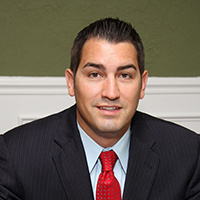 Tuscarora Misdemeanor Lawyers, Pennsylvania
Tuscarora Misdemeanor Lawyers, Pennsylvania
Not enough matches for Tuscarora Misdemeanor lawyer.
Below are all Tuscarora Criminal lawyers.
Sponsored Lawyers
1-4 of 4 matches
Criminal, Credit & Debt, Personal Injury, Bankruptcy, Car Accident
Jason M. Rapa, Esquire, is a lawyer licensed and admitted to practice law in the State of Pennsylvania and before all three Pennsylvania Federal Courts, the Eastern, Middle and Western Districts of Pennsylvania and the Third Circuit Court of Appeals. He is the founder of Rapa Law Office, where he handles all matters of general practice law, with a focus on bankruptcy, civil litigation and estate administration. Since 2002, Jason has successfully represented hundreds of consumers in cases against debt collection agencies, collection law firms, and credit reporting agencies, recovering millions of dollars for his clients. Super Lawyer Magazine has recognized Jason for his work in defending and vindicating the rights of consumers in his consumer rights litigation practice. Jason maintains memberships in the National Association of Consumer Advocates and the National Association of Consumer Bankruptcy Attorneys, keeping him on top of the latest developments and trends in the fields of bankruptcy and consumer protection law. He is a two-time attendee of the Fair Debt Collection Practices Act boot camp held by Peter F. Barry of Minnesota and Jason routinely lectures on the Fair Debt Collection Practices Act at state and national consumer law conferences, as well as at Continuing Legal Education seminars for the Pennsylvania Bar Institute and local bar associations. In addition to bankruptcy and civil litigation, Jason devotes a significant portion of his practice to estate planning and administration. Jason has participated in the Wills for Heros Program providing no-cost estate planning documents to veterans and first responders. Jason also assists the Carbon County Area Agency on Aging by preparing wills, powers of attorney and healthcare powers of attorney for Carbon County senior citizens.
(more)





